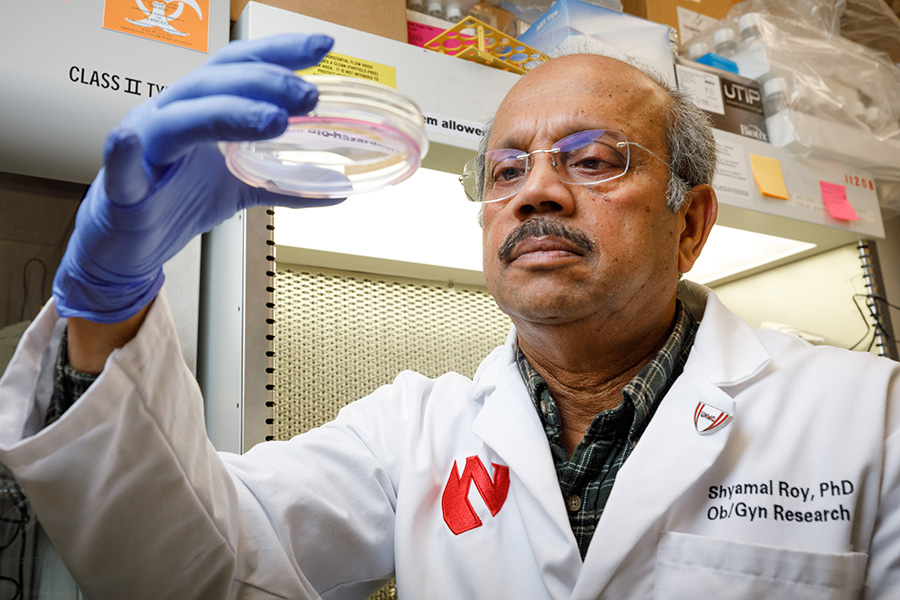Shyamal Roy, PhD - Lab

Learn More About Dr. Roy
Shyamal Roy, PhD, has a research focus of addressing how estrogen, the most important reproductive hormone in women, affects follicular development at two very critical steps in folliculogenesis.
Roy Lab Members
Shyamal K. Roy, PhD
Professor
Director of the Molecular Reproductive Endocrinology Laboratory

Research Interests
Project 1
We are studying how estrogen, epidermal growth factor, and transforming growth factor beta interact to bring about antral follicle development. Antral follicles are recruited by follicle-stimulating hormones for ovulation; hence, this transition step is critical for successful folliculogenesis and ovulation. We are investigating how classic estrogen receptor-b mediates estrogen-induced proliferation of granulosa cells as well as induces estrogen receptor-a in the granulosa cells of immature ovarian follicles. Estrogen via estrogen receptor-a stimulates the expression of epidermal growth factor receptor and transforming growth factor beta receptor. We contend that once activated, these receptors initiate intracellular signals that lead to the maturation of granulosa cells within the ovarian follicle. This finely tuned process involves feedback control circuits between estrogen receptors and the growth factor receptors and is crucial for the successful development of preovulatory follicles.
Project 2
The focus of this project is on the mechanism of estrogen-mediated primordial follicle formation. Primordial follicles form the first cohort of follicles that determine the fecundity in mammalian females, including women. We contend that undifferentiated somatic cells in the ovary are transformed into epithelial granulosa cells by an estrogen-mediated PI3kinase signaling mechanism. We use a variety of molecular and cellular approaches to determine the morphogenesis of primordial follicles. The results may offer means to improve fertility in women, whose ovarian follicles do not respond to gonadotropins for whatever reason and also may provide new insight into the mechanisms of primordial follicle formation and development.